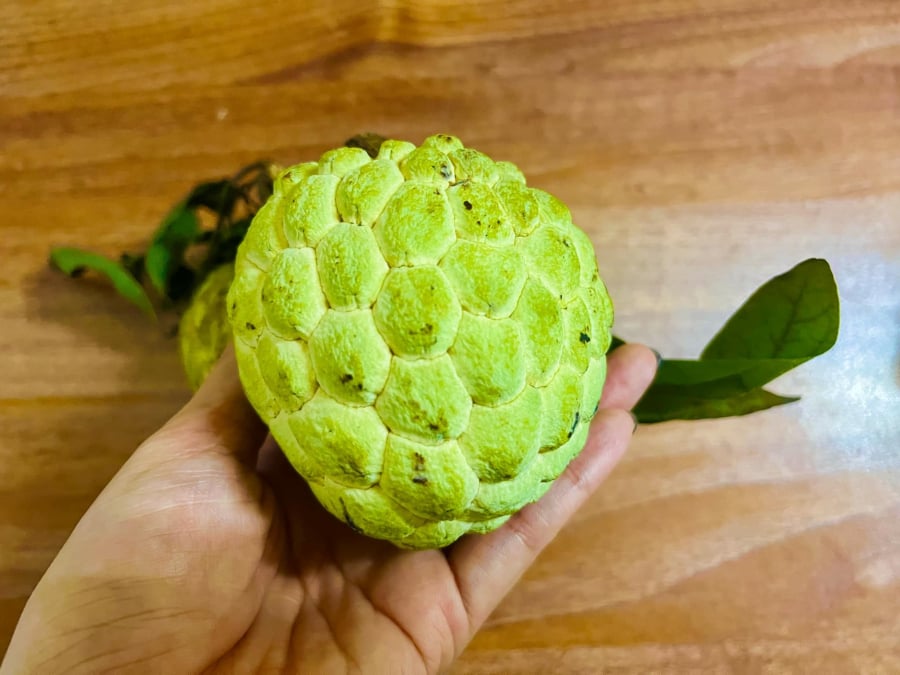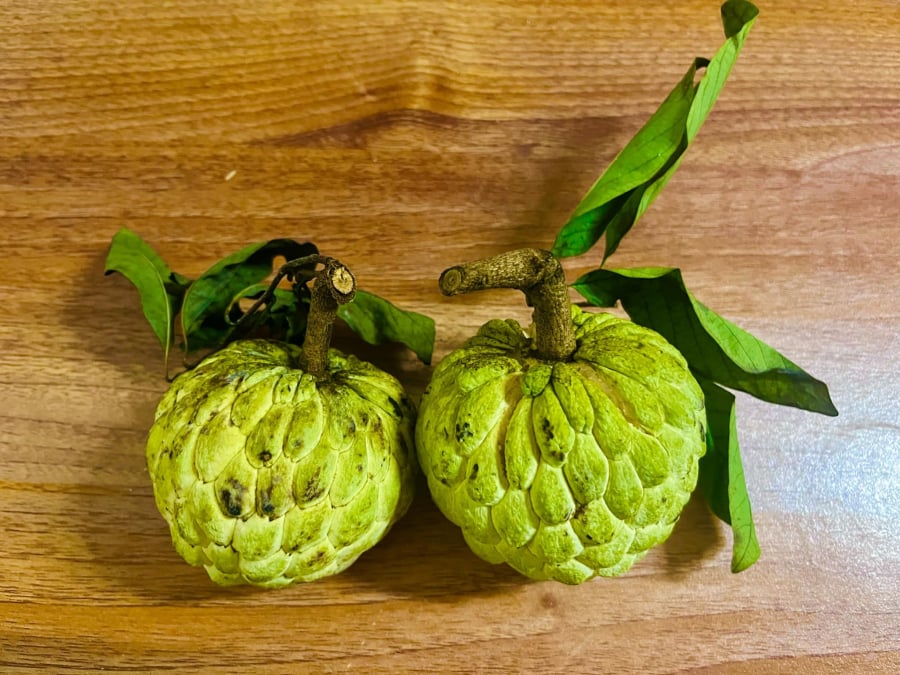Jackfruit (also known as jack tree) is a nutritious fruit, packed with fiber, carbohydrates, vitamin C, potassium, and other antioxidants that boost immunity and nourish the body. It has a delicious, sweet, and buttery flavor, making it a popular choice for many.
While jackfruit is not an unfamiliar fruit, not everyone knows how to pick the best ones. Below are some simple tips to help you choose naturally tree-ripened jackfruit:
**Tip 1: Examine the Eyes of the Jackfruit**
One of the most important factors in assessing the quality and ripeness of jackfruit is its eyes. There are two main types of jackfruit in the market: chewy and soft. Regardless of your preference, look for jackfruits with large eyes. The number of eyes on a fruit is not as important as its size, as it depends on the fruit’s overall dimensions.

The most important tip for choosing jackfruit is to observe its eyes.
Additionally, depending on the variety, each fruit will have unique characteristics. For chewy jackfruit, choose fruits with large, flat eyes, as they tend to be sweeter and have fewer seeds. A slightly cracked shell with a firmly attached stem indicates naturally tree-ripened fruit, ensuring a sweet and aromatic flavor. For soft jackfruit, opt for rounder fruits with light green skin, white eye slits, and small stems. If you notice the stem starting to detach from the fruit, and the jackfruit feels slightly soft without cracks, it’s a sign of perfect ripeness.
**Tip 2: Check the Aroma of the Jackfruit**

Choose jackfruit with a subtle natural fragrance.
Naturally ripened jackfruit will have a subtle, pleasant aroma that isn’t too overpowering. After purchasing, you can either consume the fruit immediately or wait for a day. If you detect a sour smell, it indicates that the jackfruit has overripe, fermented, or spoiled.
Avoid jackfruits with prominent black spots on the shell, as this suggests bacterial infection.
**Ripening and Storing Jackfruit**
If you buy unripe jackfruit, you can ripen it further by storing it for a few days.
The simplest method is to place the jackfruit in a rice container. Leave it there for 1-2 days, and the fruit will soften and ripen.
Alternatively, you can use a large pot or jar. Line the bottom with fresh lychee leaves, place the jackfruit on top, and insert 1-2 incense sticks. Cover the pot and leave it for 1-2 days; the jackfruit will ripen. Note: Do not use dry leaves, as falling ash from the incense may burn them.
**Storing Jackfruit**
If you don’t plan to consume the jackfruit immediately, proper storage is necessary to prevent over-ripening and fermentation.
First, separate the ripe and unripe fruits. Consume the ripe ones first and store the unripe ones for later. Handle the fruits gently to avoid bruising.
Wrap each jackfruit individually in soft paper, cloth, or plastic. Then, place them on a tray, plate, or basket, and keep them in a dry, cool, and well-ventilated area, ensuring they don’t come into contact with water. Avoid direct sunlight.
You can also store jackfruit in a separate box or bag in the refrigerator’s vegetable compartment to slow down the ripening process.
The Top 3 Delicious and Sweet Fruits That Are a No-Go for Ancestral Altars
The ancient customs and traditions surrounding fruit offerings on ancestral altars during festive occasions are intriguing. It is fascinating to discover that not all fruits are deemed suitable for this purpose. The three delicious, sweet, and visually appealing fruits listed below are traditionally avoided and not placed on altars during rituals.





































